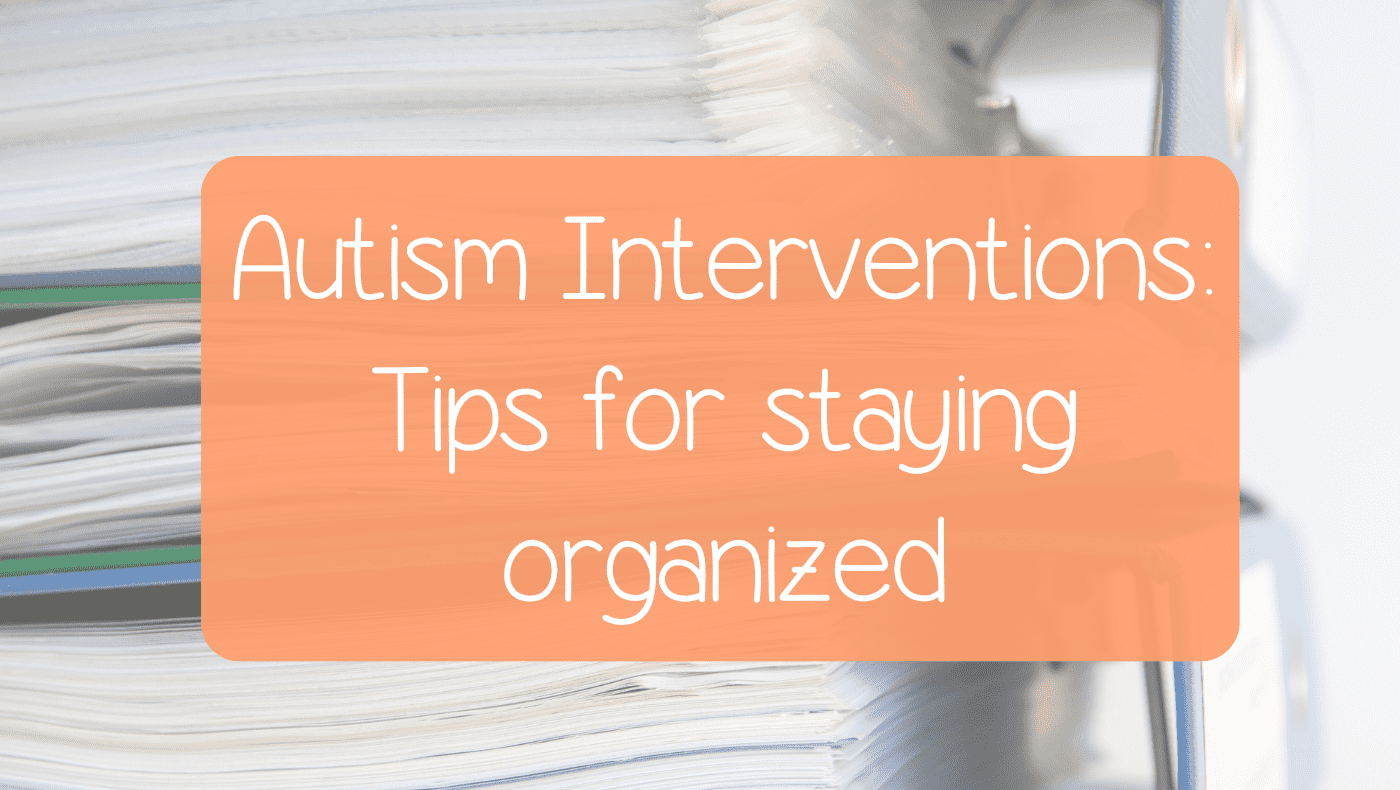Last updated on March 21st, 2025 at 08:36 am
For parents of children with autism, I understand the struggles that come with helping our kids achieve their best. From dealing with meltdowns to finding ways to keep them engaged and stimulated, it can be a daunting task. But one thing that can help to make this process easier is staying organized while you work towards improving your child’s health. This blog post will explore how organizing your environment and activities can help you better manage the challenges associated with autism and have more success in helping your child reach their goals. I will be sharing with you some useful tips to stay organized with autism intervention
#1 Binder
One of the best tips to stay organized with autism intervention is to use a binder to keep all of their documents. This can include IEPs, medical records, notes from appointments, and any other important information that needs to be tracked in order to ensure your child’s progression. Not only does this help you stay organized but it also reduces the risk of losing vital paperwork.
Organizing these documents into a binder can be helpful in many ways. It allows you to easily review and track progress over time as well as quickly access any important information you may need regarding your child. Additionally, it helps you save time when scheduling appointments or meetings with professionals since all of the necessary paperwork is readily available and easy to find.
When organizing your binder, make sure that each document is clearly labeled so that everything remains neat and orderly. You may also want to separate them into different sections based on type or date so that you can more easily find what you need when looking through the binder. Lastly, set up a system for filing away new documents so that nothing gets lost or misplaced in the shuffle of everything else going on in your life.
Taking the extra time now to set up this organizational system will save both time and energy throughout their journey with autism by making it easier for them to manage tasks related to their child’s care without having to worry about where all the information is located.
#2 Calendar
Using a calendar to keep organized can be an invaluable tool for parents of children with autism. A well-planned calendar will help families stay on top of appointments and track their child’s progress throughout treatment. It is important to have a master calendar that clearly outlines all upcoming appointments, including those with therapists, doctors, and other professionals, as well as any upcoming tests or evaluations. This will allow you to easily see what is coming up and plan ahead to ensure that they are adequately prepared for each appointment.
In addition to scheduling regular appointments, it is also important to add reminders and notes about upcoming events or changes in therapy so that you can stay up-to-date. For example, if the therapist increases or decreases dosage levels or makes any other adjustments to the treatment plan, this should be noted on the calendar so that these changes are not forgotten over time.
Having a physical paper calendar for writing down each appointment can be beneficial since it gives families an easy way to glance at their child’s schedule without having to search through emails or other documents. However, it is also helpful to utilize digital calendars such as Google Calendar or Apple Calendar which offer features like syncing across multiple devices and setting up email notifications for reminders about upcoming events.
Overall, using a calendar is an effective tool for staying organized when caring for a child with autism. With proper planning and organization, you can ensure that you always have access to the most current information regarding your child’s care while also keeping track of their progress over time.
#3 Journal
In addition to using a binder and calendar to stay organized with autism intervention, another great way tip for parents of children with autism is to use a journal. Keeping track of progress in a journal can be an invaluable tool for monitoring the effectiveness of treatments and therapies over time.
Using a journal to track progress is an important tool for parents of children with autism. A journal can be used to record detailed information about the child’s daily activities, behavior, and any changes in their treatment plan. This can help families keep track of their child’s development over time, as well as document any successes or challenges that may arise.
Having a physical paper journal is ideal since it allows you to write more detailed notes that you may not be able to capture. When writing in the journal, you should include basic information such as the date and any specific parameters that were measured, but you should also record your own observations and interpretations of what you are seeing. For example, if their child has been doing well with speech therapy, you should document this in your journal. If you have changed up your child’s nutritional protocol and notice changes then you can put this in your journal.
In addition to tracking progress, a journal can also be used for recording strategies or techniques that have worked for the child or family in different situations. This could include news that has helped improve communication or reduce problematic behaviors. Keeping track of these strategies in one place can make it easier for families to look back and reference ideas when needed in the future.
Overall, using a journal to track progress is an essential tool for parents of children with autism since it allows them to document detailed observations and insights regarding their child’s development over time. Keeping this kind of log can also help families create meaningful connections between treatments or therapies and their impact on the child’s behavior and growth so that they are better equipped to address any potential issues along the way.
Staying organized is a key component of providing effective care for children with autism. By utilizing tools such as binders, calendars, and journals, you can ensure that you have access to all the necessary information regarding your child’s treatment plan while tracking progress over time. With proper planning and organization, families can gain valuable insight into their child’s development which will help them make informed decisions about how best to support their needs in the future.
If you are a parent looking for ways to best support your child, check out my support and nutritional resources.





0 Comments